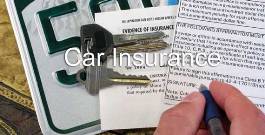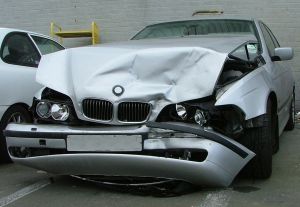 For those who think that all politicians are alike, that it doesn’t matter who is elected, think again. One need only look at what happened in the Florida legislature on Friday, March 9, 2012, to debunk the notion.
For those who think that all politicians are alike, that it doesn’t matter who is elected, think again. One need only look at what happened in the Florida legislature on Friday, March 9, 2012, to debunk the notion.
Tea-party darling Florida Governor Rick Scott and his right-wing Republican cohorts rammed through an anti-consumer, pro-insurance industry motor vehicle insurance law to rival any in the nation. It is so anti-consumer that even 8 Republican senators voted against it. Unfortunately, the bill passed in the Florida Senate by one vote.
The new law, effective January 1, 2013, deals with PIP (Personal Injury Protection) insurance. (Here’s a link to the law, House Bill 119.)
PIP is a form of insurance that covers medical and lost wages arising out of motor vehicle accidents. The current PIP law covers a total of $10,000 in medical expenses and lost wages subject to a deductible, if any, chosen by the policy holder. Whether and how much is paid in medical expenses is based on the reasonableness and necessity of the medical care.
The new law adds more hurdles to obtaining the full $10,000 in medical coverage.
- If an insured fails to seek medical treatment within 14 days of the accident, PIP will not pay any medical expenses. None. It is not unusual for injuries to manifest themselves worthy of medical care more than 14 days after an accident. It is also not unusual for people with real injuries but busy schedules to need more than 14 days to obtain medical care. Factor in the difficulty of obtaining an appointment with a doctor and we anticipate that this provision will eliminate coverage for many policy holders.
- Unless the medical treatment is for an “Emergency Medical Condition,” PIP payments will be limited to $2,500. (EMC is defined in the new legislation as: (a) Serious jeopardy to patient health; (b) Serious impairment to bodily function; (c) Serious dysfunction of any bodily organ or part.) This provision will likely spawn significant litigation from medical providers, especially for hospital emergency room services. Nonetheless, it is clearly a high standard that will reduce PIP payments in most cases.
Undoubtedly, the overall impact of the legislation will be to reduce PIP medical payments. Ironically, the legislation does not impose a mandatory reduction in insurance premiums.
Profits over people. And the beat goes on….
Continue reading
 The only motor vehicle insurance coverages the owner of a vehicle registered in Florida must maintain are Personal Injury Protection (PIP) and Property Damage – Liability. Nothing else is required to lawfully operate a vehicle in Florida.
The only motor vehicle insurance coverages the owner of a vehicle registered in Florida must maintain are Personal Injury Protection (PIP) and Property Damage – Liability. Nothing else is required to lawfully operate a vehicle in Florida. Florida Injury Attorney Blawg
Florida Injury Attorney Blawg








